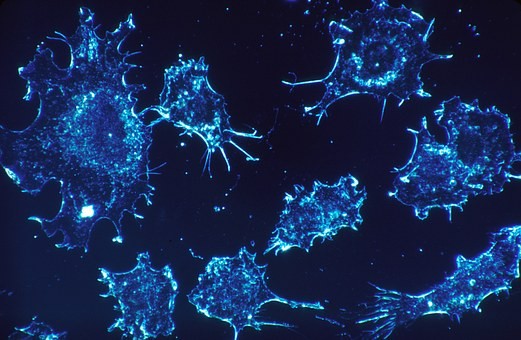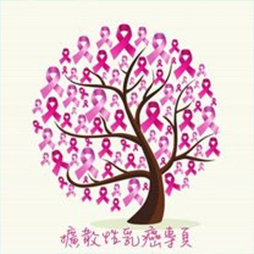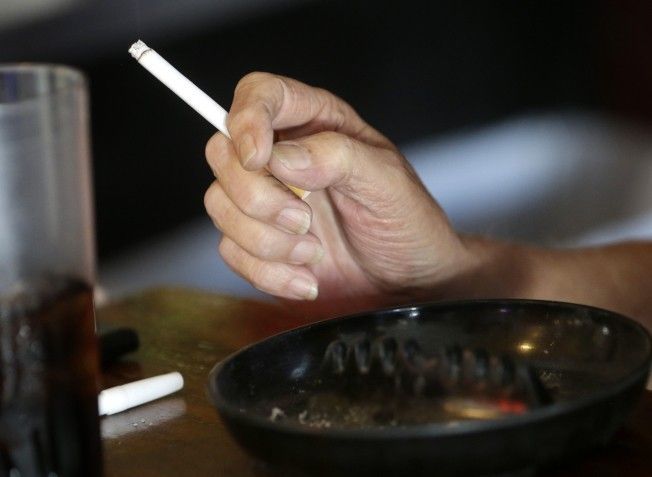淋巴癌治療 – 淋巴癌冶療簡介
2017月07月12日 作者:藥物教育資源中心

淋巴癌(Lymphoma),是血液系統的惡性疾病之一,因其病徵不明顯(特別是初期的慢性淋巴癌),不少人患上了此症也不知情,因此又稱為「沉默的癌症殺手」。 淋巴癌的種類非常繁多,本港以非何傑金氏淋巴癌(non-Hodgkin's lymphoma)最為常見。 醫管局癌症統計中心資料顯示,2014年非何傑金氏淋巴癌的病發率位列第九,每年約有九百多宗新症,而死亡率更是香港十大癌症殺手的第八位,每年約有三百五十多宗死亡個案1。
非何傑金氏淋巴癌有不同種類,根據癌症起始的細胞種類型可分為B細胞淋巴癌,T細胞淋巴癌以及自然殺傷細胞癌2。 然而,大部分個案屬於B細胞淋巴癌,對這些患者而言,利妥昔單抗(Rituximab)是主要的治療選擇3。 利妥昔單抗是一種單克隆抗體,靶向結合正常和惡性淋巴細胞表面的CD20抗原,隨後調動人體的天然防禦,攻擊和殺死標記的B細胞。 骨髓內的幹細胞缺乏CD20抗原,從而使健康的B細胞能夠在療程後再生,並在幾個月內恢復至正常水準4。 倘結合化療藥物一併使用,有效提升患者存活期,成效理想。
大部分B細胞淋巴癌屬於濾泡型淋巴癌(Follicular lymphoma)或彌漫型大B細胞淋巴癌(Diffuse large B-cell lymphoma) 5。在濾泡型淋巴癌患者中,當利妥昔單抗和化療作為誘導治療應用時,可以顯著延長患者的無惡化生存期以及總生存期6,隨後應用利妥昔單抗作為持效治療跟進療程,可以進一步改善濾泡型淋巴癌患者的無惡化生存期及生存率7,8。 在彌漫型大B細胞淋巴癌患者中,利妥昔單抗聯合化療能將患者的10年存活率提升至43.5%,而接受單一化療治療的患者僅有27.6%的存活率9。
過往,患者需要在醫護人員的監督下,透過靜脈注射的形式來接受利妥昔單抗的治療,全程至少需要2.5個小時。 同時接受化療及單抗靜脈輸注的患者,由調配藥物到完成輸注藥物,以及輸注藥物前後的檢查,需要在醫院或診所逗留更長時間,這種長時間的治療會對他們的生活帶來不少影響。 近年,利妥昔單抗的使用方法由靜脈輸注改良成皮下注射。 使用新型的皮下注射劑,耗時僅需5分鐘10,省時方便,大大縮短患者逗留于醫院或診所的時間,生活質素得到改善之餘,還可避免靜脈穿刺所引起的痛楚和風險。
根據一項國際性的三期臨床資料顯示,對於濾泡型淋巴癌患者而言,皮下注射較傳統的靜脈注射相比,在療效和安全性上基本一致11。 另一項患者治療偏好研究顯示,大多數濾泡型淋巴癌或彌漫型大B細胞淋巴癌患者優先選擇皮下注射而非靜脈注射利妥昔單抗,患者對皮下注射的治療滿意度通常更高,大部分患者認為這種新型注射方式所需時間剛剛好,並對他們日常生活的影響大大減少12。 同時,作為一種固定劑量的易用型液體配方,皮下注射劑的使用可以大大簡化護理程式,減輕醫護人員的工作量13。 因此,這種新的使用方式對醫患雙方均有所裨益。
(鳴謝 羅氏大藥廠香港有限公司支持)
NPM-HK-0033-06-2017
參考資料:
1. Hong Kong Cancer Registry. Top Ten Cancers in 2014. Available at: https://www3.ha.org.hk/cancereg/topten.html (Accessed Feb 9, 2017).
2. Adult Non-Hodgkin Lymphoma Treatment (PDQ®). Patient Version. Available at: https://www.ncbi.nlm.nih.gov/pubmedhealth/PMH0032605/.
3. National Comprehensive Cancer Network Clinical Practice Guidelines in Oncology. B-cell lymphomas. Version 2.2107. Available at: www.nccn.org.
4. Johnson P and Glennie M. The mechanism of action of rituximab in the elimination of tumor cells. Semin Oncol 2003;20(1 Suppl 2):3-8.
5. Ghielmini M, Vitolo U, Kimby E, et al. ESMO Consensus Guidelines: Diffuse Large B-Cell Lymphoma (DLBCL), Follicular Lymphoma (FL) and Chronic Lymphocytic Leukemia (CLL). Ann Oncol 2013;24(3): 561-576.
6. MabThera® 美羅華® Hong Kong product information. Current at Feb 2015.
7. van Oers MHJ, Klasa R, Marcus RE, et al. Rituximab maintenance improves clinical outcome of relapsed/resistant follicular non-Hodgkin lymphoma in patients both with and without rituximab during induction: results of a prospective randomized phase 3 intergroup trial. Blood 2006;108:3295-3301.
8. Salles G, Seymour JF, Feugier P, et al. Updated 6 Year Follow-Up Of The PRIMA Study Confirms The Benefit Of 2-Year Rituximab Maintenance In Follicular Lymphoma Patients Responding To Frontline Immunochemotherapy. 55th ASH Annual Meeting and Exposition, New Orleans, LA, 2013 (509). Available at: https://ash.confex.com/ash/2013/webprogram/Paper58981.html (Accessed March 1 2014).
9. Coiffier B, Thieblemont C, Van Den Neste et al. Long-term outcome of patients in the LNH-98.5 trial, the first randomized study comparing rituximab-CHOP to standard CHOP chemotherapy in DLBCL patients: a study by the Groupe d’Etudes des Lymphomes de l’Adulte. Blood 2010;116:2040-2045.
10.MabThera SmPC. Updated August 2016. Available at: http://www.ema.europa.eu/ema/index.jsp?curl=pages/medicines/human/medicines/000165/human_med_000897.jsp&mid=WC0b01ac058001d124. Accessed 19 January 2017.
11.Davies A, et al. Efficacy and safety of subcutaneous rituximab versus intravenous rituximab for first-line treatment of follicular lymphoma (SABRINA): a randomised, open-label, phase 3 trial. The Lancet Haematology 2017;4(6);e272-e282.
12.Rummel M, Kim TM, Aversa F, et al. Preference for subcutaneous or intravenous administration of rituximab among patients with untreated CD20+ diffuse large B-cell lymphoma or follicular lymphoma: results from a prospective, randomized, open-label, crossover study (PrefMab). Ann Oncol. 2017 Apr 1;28(4):836-842. doi: 10.1093/annonc/mdw685.
13.De Cock E, Kritikou P, Sandoval M, et al. Time Savings with Rituximab Subcutaneous Injection versus Rituximab Intravenous Infusion: A Time and Motion Study in Eight Countries. PLoS One. 2016 Jun 30;11(6):e0157957. doi: 10.1371/journal.pone.0157957. eCollection 2016.
文章來自: 藥物教育資料中心
http://www.derc.org.hk/en/perspective-detail.php?id=49













.jpg)
.jpg)

.jpg)
.jpg)
.jpg)
.jpg)
.jpg)
.jpg)
.jpg)
.jpg)

.jpg)


.jpg)
.png)



